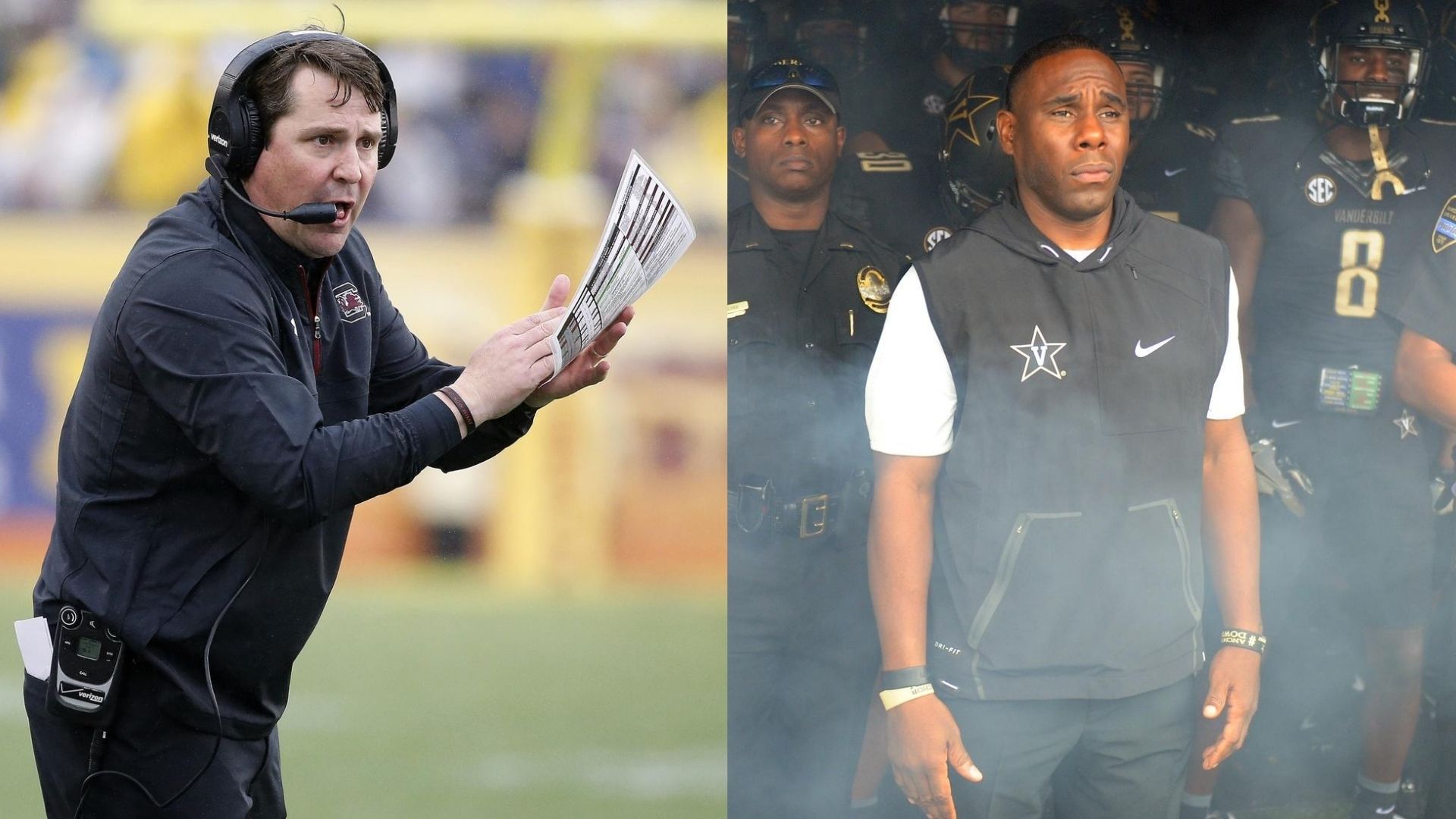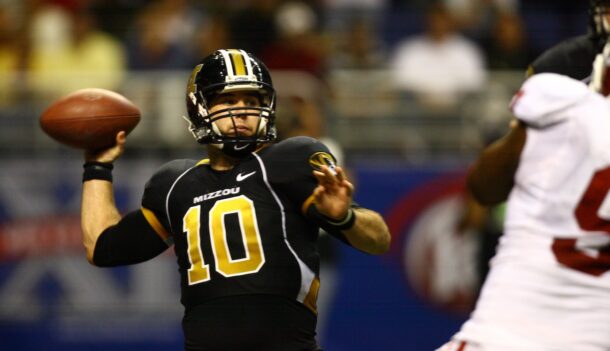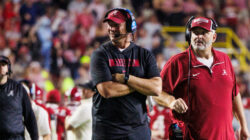
There might be only be 1 option in this atypical year for coaches like Will Muschamp and Derek Mason
I have no idea what I’d be doing right now if I were Ray Tanner or Candice Storey Lee. Perhaps that’s why I’m not an athletic director and they are.
Tanner and Lee are the ones who will have a decision to make at season’s end about the futures of their respective head coaches. Tanner be tasked with deciding whether Will Muschamp deserves a Year 6 at South Carolina, and Lee will have to decide whether Derek Mason should get a Year 8 at Vanderbilt.
Um, good luck with that.
Lost in the shuffle of this unprecedented year wherein conferences went rogue and decided to only play against each other in a 10-game season is the fact that athletic directors are being put in a strange spot for how to evaluate their head coaches. Specifically, head coaches like Muschamp and Mason who have murky futures.
I say that not as someone hoping to stir up rumors, but as someone who knows that missing the postseason by multiple games usually doesn’t work long term in the SEC.
Regardless of whether reports of South Carolina asking Florida State how to finance an $18 million buyout last year had an ounce of truth to them, 3 consecutive disappointing seasons in the SEC won’t make the pro-Muschamp crowd grow. And regardless of any future public statements of support for Mason, Lee’s first major coaching decision since taking over as Vanderbilt’s full-time athletic director in May will be deciding the next step for the football program.
But maybe both should just punt on treating 2020 as a make-or-break year.
Why? Well, not to take multi-million dollar coaches off the hook, but there’s nothing normal about 2020. You know, in case you haven’t heard. This offseason has been unlike any other, the schedule is unlike any other and the protocols put in place to play through a pandemic are unlike any other.
And you can say that it’s the same for everyone, so why should Muschamp and Mason get a pass? If voluntary workouts were any indication, quarantines are going to be totally random. Rutgers had a team-wide quarantine post-outbreak, and Ohio State shut down voluntary workouts.
South Carolina could have its entire offensive line quarantined for a game against Kentucky and lose by 30, or the Gamecocks could pull off an upset after Florida loses its entire defensive line. I have no idea if either happens. I also have no idea what it would say about a coach’s performance if either situation played out.
The 2020 season is going to be as random as it gets. I don’t know if there are any long-term takeaways one should have about coaches in a year like this, good or bad.
Speaking of good or bad, what exactly would that be for South Carolina and Vanderbilt in an SEC-only schedule?
The Gamecocks have 1 winning season in SEC play in the past 6 years. Before they even added their 2 additional conference games, it was an SEC slate that had 7 teams that won at least 6 games last year. For a team coming off a 4-8 season, how can we come up with a make-or-break win total for Muschamp? Like, why would a 4-6 season with all of these moving pieces push a decision 1 way or another? It probably shouldn’t.
And to be honest, that’s before we address the whole “he still has an 8-figure buyout” thing.
Mason might not have an 8-figure buyout, but there’s a legitimate chance that his team is an underdog in every game it plays this year. If Vandy goes 2-8, is that still a fireable offense? Mason’s SEC winning percentage is .208, which he’d essentially be repeating if he got to 2-8 in a conference-only slate. Getting to 3-7 won’t earn him a bowl berth, but it could actually be more impressive than when his teams did earn bowl berths in 2016 and 2018. Or maybe his teams will win 3 games against SEC squads that had their starting quarterbacks test positive for COVID-19.
On one hand, this schedule is canceling out the fluff. No SEC football coach should be evaluated based on how they play against Tennessee-Chattanooga. If getting to 6 wins is the goal but 4 of those wins are outside of league play, what does going 2-6 really say about competing in the SEC? In theory, one would think a schedule that cuts out the fat is a better measure of what kind of direction the program is going in.
But on the other hand, why is it fair to make a decision that’ll impact the next decade when all the variables of the upcoming season are abnormal?
That’ll be the defense of Muschamp or Mason if they do indeed struggle in 2020. And quite frankly, I don’t blame them. This isn’t what they signed up for, and (hopefully) it’s not what they’ll be expected to deal with post-2020, either.
That’s coming from someone who has been admittedly critical of both coaches over the past year. Muschamp’s inability to properly evaluate offensive personnel is perplexing, and while Vanderbilt is certainly a unique job, having arguably the best trio of offensive skill players return only to lead the nation’s No. 125 offense to a 3-9 season isn’t a ringing endorsement for Mason, either.
One can acknowledge that Muschamp and Mason earned the criticism they received while also acknowledging that it might be best to just punt on their futures until 2021. Mason is under contract through at least 2022 based on the fact that he got an extension in Feb. 2019 to a contract that ran through 2021 (we don’t know the terms because Vanderbilt is a private school). Muschamp also got an extension after his 2018 season, which is set to keep him in Columbia through 2024.
Is standing pat on both really going to impact their ability to recruit? Mason has yet to sign a top-40 class and Muschamp’s deal will still have another 4 years left on it after the 2020 season. You can’t tell me that’ll make some massive recruiting impact to delay that decision until after a non-pandemic year.
That might not be what fans want to hear, especially for those who thought that Muschamp and Mason should have been fired at the end of the 2019 season. But it seems like if there was ever a time to adjust expectations, it’s now.
We don’t know what each university’s financial situation will be to cover buyouts for these coaches. Certainly a pandemic forcing budget cuts galore doesn’t suggest a Power 5 school is more likely to fire a coach. This weird year could make for the quietest coaching carousel we’ve seen in recent memory. It certainly did for college basketball.
Who knows what Tanner and Lee have in mind. For all I know, they’ll pounce on anything short of a bowl season as a reason to cut bait with their respective head coaches. Or maybe they’re treating this year of extra SEC competition as the best barometer possible. All I know is if I were in their shoes, I wouldn’t let 2020 decide anything.
Putting stock in 2020 to take care of anything seems, um, ambitious.
Connor O'Gara is the senior national columnist for Saturday Down South. He's a member of the Football Writers Association of America. After spending his entire life living in B1G country, he moved to the South in 2015.







